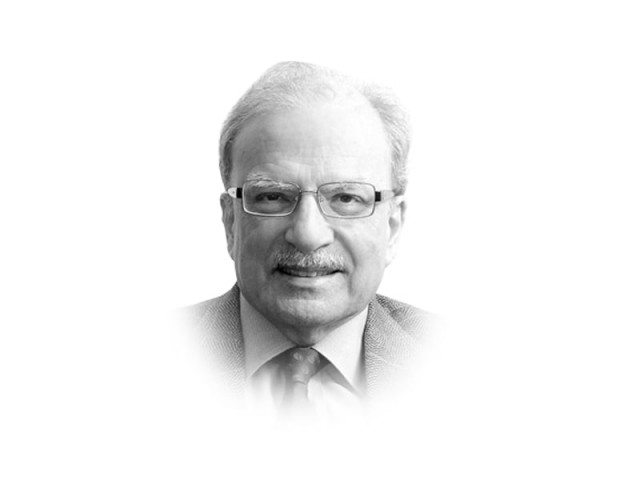West and the Muslim world
Religion is one, but not the only reason, why the Muslim world is so unsettled at this time

The writer is a former caretaker finance minister and served as vice-president at the World Bank
Past rapid rates of population growth mean that most large Muslim states have very young populations. Three South Asian nations – Pakistan, Bangladesh and Afghanistan – have large Muslim majorities while India, by the far the most populous country, has a large Muslim minority. The median age of the Muslim population in the western part of the Islamic world is about 24 years, which means that half of the 1.2 billion people who live here are below that age. A significant proportion of these is in the area’s large cities and have aspirations for leading productive lives most system of governance are unable – or not willing – to provide. Several decades ago, Albert O. Hirschman of Harvard University published a powerful book titled Exit, Voice and Loyalty. Alienated populations choose from the three options listed in the title of the book: many Muslim youth have gone for the option of “exit” from the system. They tried to stage the Arab Spring to bring about systemic change and move their part of the world towards more inclusive political, social and economic structures.
As Daron Acemoglu and James Robinson have written in their book, Why Nations Fail, exclusive systems that keep out large segments of the population are essentially unstable. But the Arab Spring mostly failed.
There are some other demographic trends in South Asia that need to be noted. They could impact not only the region but the world at large. In the 40-year period between 2010 and 2050, South Asia’s Muslim population is expected to increase by almost 65 per cent, from 513 million to 845 million. Of the area’s three largest communities, the size of the one living in India will increase by 76 per cent, 12 percentage points more than the regional average. By 2050, India, with 311 million people belonging to the Islamic faith, will have the world’s largest Muslim population. Sociologist Riaz Hasan points out in his recent book that unless a fundamental change occurs in the way the government takes care of the Muslim minority, this group would get increasingly alienated. “Unlike other religious minorities, Indian Muslims carry double burden of being labeled ‘anti-nationalist’ and being appeased simultaneously,” he writes. While the Indian Constitution is a powerful political instrument aimed at rectifying political, economic, and cultural inequities in the country, in practice, the Muslim community has been left behind. India and the world cannot afford to have such a large body of disgruntled and alienated body of people. The lingering Kashmir dispute in which Indian security forces have used considerable force to bring peace to the area has not worked but alienated a large segment of the Indian Muslim population.
There is also the unhappy memory of what the West did in the area that has been used by several dissident groups to produce popular sentiment against not only the United States but also Europe. The West was heavily involved in supporting the rule of a narrow elite in many parts of the Muslim world. This support was provided as a part of a “grand bargain” in which the West, in particular, the United States, wanted uninterrupted supply of oil, open sea lanes and tolerance of the Jewish state of Israel in return for helping narrow elites retain power. Most of the rulers did little for their citizenry, looking mostly after their own economic interests or those of their close associates. First, the Arab Spring and then a dramatic change in the economics of oil led to the collapse of the bargain. Regimes fell in Tunisia, Egypt and Yemen and chaos prevailed.
I will conclude this article by asking a number of questions: How should the United States deal with its relative decline in its mass and the steady rise in the weight of China and of late, also that of India? Such adjustments in the past were made through open conflict; will that be the case this time around as well? What should be the response to the rise of the Islamic State and how should its influence over some segments of the Muslim society be managed? Could the rise of ISIS be handled purely by the use of force? Is there a way of constructing political orders in the western part of the Islamic world that are inclusive and participatory? What is the likelihood that the tribal cultures in large parts of the Muslim world, in which power flows from the top to the bottom, could grow over time into liberal political and economic orders? How should the United States engage itself with the world of Islam so that it provides encouragement to those in these societies, who would leave the past behind and move towards inclusive systems? How should Washington wind down its war in Afghanistan that would ensure that the country does not provide home to the Muslim world’s extremists? And, the final question, is there a place for a relationship of the United States and Pakistan in the answers to these questions?
Published in The Express Tribune, August 29th, 2016.
Like Opinion & Editorial on Facebook, follow @ETOpEd on Twitter to receive all updates on all our daily pieces.















COMMENTS
Comments are moderated and generally will be posted if they are on-topic and not abusive.
For more information, please see our Comments FAQ